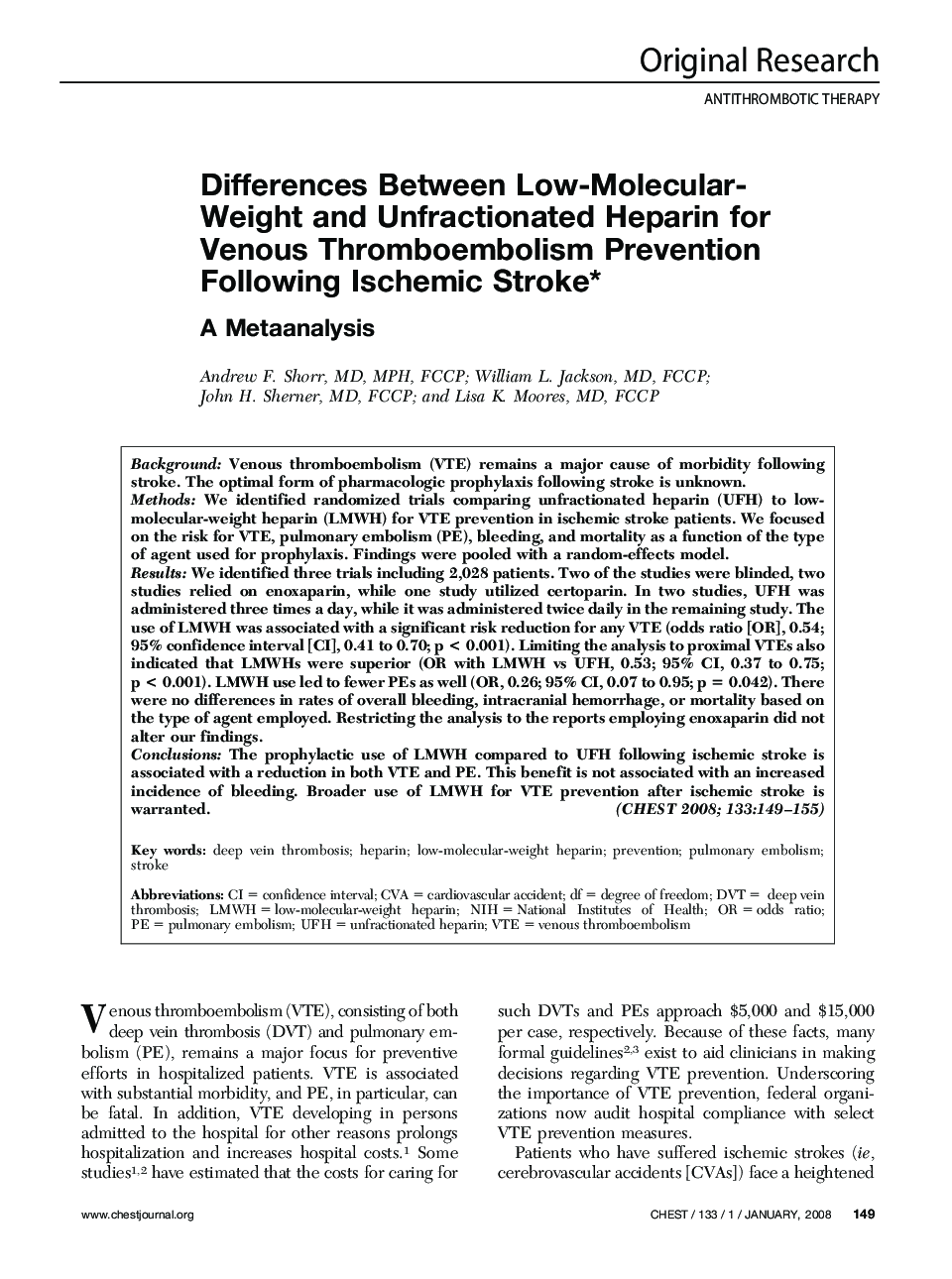| کد مقاله | کد نشریه | سال انتشار | مقاله انگلیسی | نسخه تمام متن |
|---|---|---|---|---|
| 2904090 | 1173404 | 2008 | 7 صفحه PDF | دانلود رایگان |

BackgroundVenous thromboembolism (VTE) remains a major cause of morbidity following stroke. The optimal form of pharmacologic prophylaxis following stroke is unknown.MethodsWe identified randomized trials comparing unfractionated heparin (UFH) to low-molecular-weight heparin (LMWH) for VTE prevention in ischemic stroke patients. We focused on the risk for VTE, pulmonary embolism (PE), bleeding, and mortality as a function of the type of agent used for prophylaxis. Findings were pooled with a random-effects model.ResultsWe identified three trials including 2,028 patients. Two of the studies were blinded, two studies relied on enoxaparin, while one study utilized certoparin. In two studies, UFH was administered three times a day, while it was administered twice daily in the remaining study. The use of LMWH was associated with a significant risk reduction for any VTE (odds ratio [OR], 0.54; 95% confidence interval [CI], 0.41 to 0.70; p < 0.001). Limiting the analysis to proximal VTEs also indicated that LMWHs were superior (OR with LMWH vs UFH, 0.53; 95% CI, 0.37 to 0.75; p < 0.001). LMWH use led to fewer PEs as well (OR, 0.26; 95% CI, 0.07 to 0.95; p = 0.042). There were no differences in rates of overall bleeding, intracranial hemorrhage, or mortality based on the type of agent employed. Restricting the analysis to the reports employing enoxaparin did not alter our findings.ConclusionsThe prophylactic use of LMWH compared to UFH following ischemic stroke is associated with a reduction in both VTE and PE. This benefit is not associated with an increased incidence of bleeding. Broader use of LMWH for VTE prevention after ischemic stroke is warranted.
Journal: Chest - Volume 133, Issue 1, January 2008, Pages 149–155